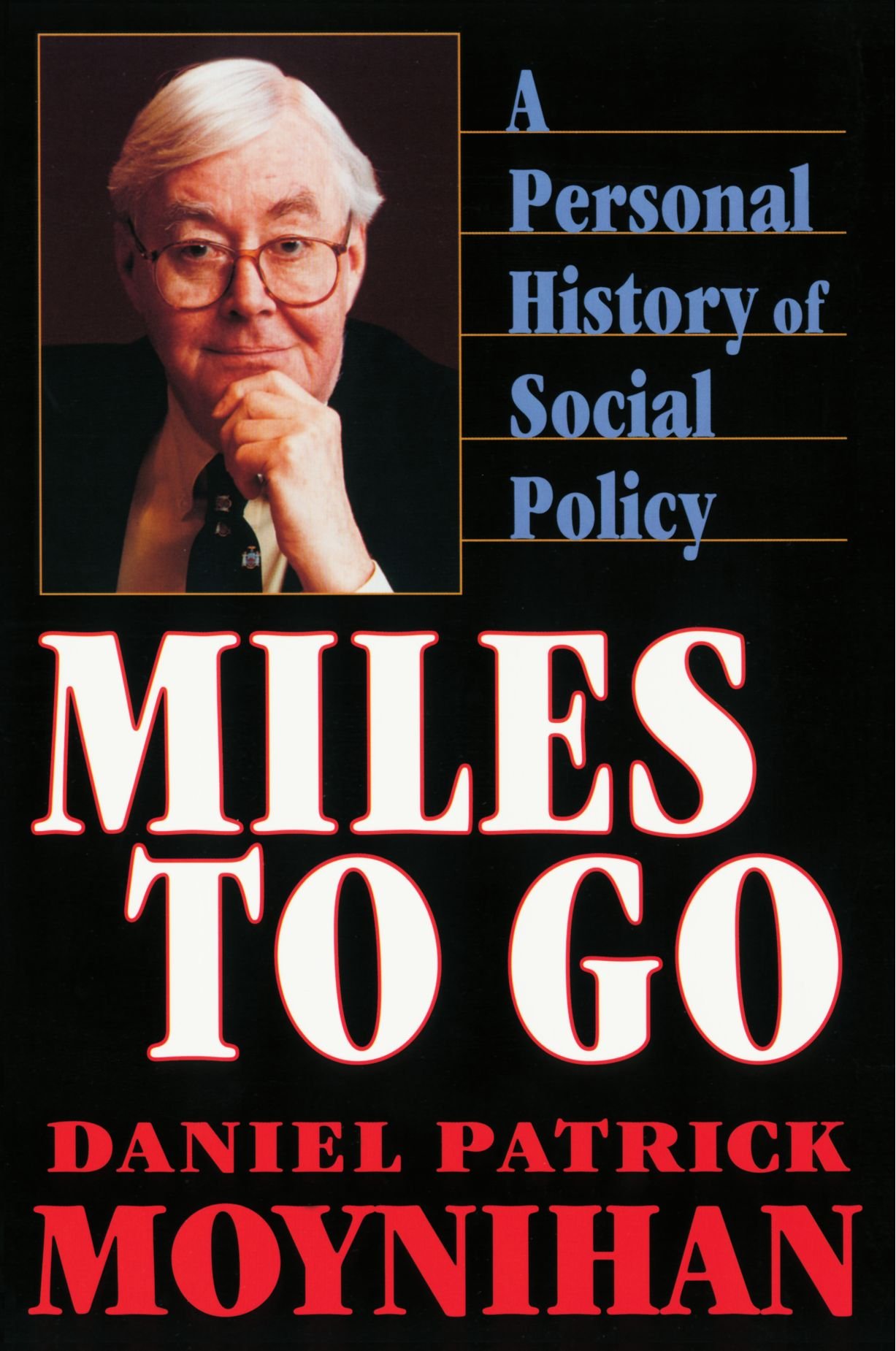Miles to Go: A Personal History of Social Policy, Cambridge: Harvard University Press, 1996.
From the publisher: Has liberalism lost its way—or merely its voice? This book by one of the nation’s most insightful, articulate, and powerful Democrats at last breaks the silence that has greeted the Republican Party’s revolution of 1994. When voters handed Democrats their worst defeat in 100 years, New Yorkers returned Daniel Patrick Moynihan to the Senate for his fourth term. Amid the wreck of his party’s control and the disarray of programs and policies he has championed for three decades, Senator Moynihan here takes stock of the politics, economics, and social problems that have brought us to this pass. With a clarity and civility far too rare in the political arena, he offers a wide-ranging meditation on the nation’s social strategies for the last 60 years, as well as a vision for the years to come.
Because Senator Moynihan has long been a defender of the policies whose fortunes he follows here, Miles to Go is in a sense autobiographical, an exemplary account of the social life of the body politic. As it guides us through government’s attempts to grapple with thorny problems like family disintegration, welfare, health care, deviance, and addiction, Moynihan writes of “The Coming of Age of American Social Policy.” Through most of our history American social policy has dealt with issues that first arose in Europe, and essentially followed European models. Now, in a post-industrial society we face issues that first appear in the United States for which we will have to devise our own responses. Ringing with the wisdom of experience, decency, and common sense, Miles to Go asks “why liberalism cannot be taught what conservatives seem to know instinctively”—to heed the political and moral sentiments of the people and reshape itself for the coming age.
Online:
Harvard University Press

